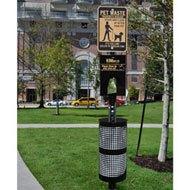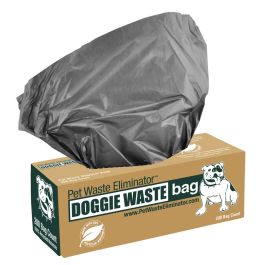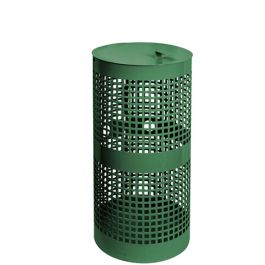Why Dog Poop Disposal is Good For Your Health
We probably all know at least one dog owner who is less than diligent about cleaning up after their pet. They may have a bunch of excuses for this – it's not a big deal; it's a great fertilizer; everybody does it. I've even heard pet owners say that other people will just have to watch where they're going. Leaving dog waste uncollected isn't just inconsiderate. The harsh truth is that dog waste is a major factor in groundwater contamination – in addition to being smelly and a real pain to wash off of your good shoes. There are lots of important reasons for proper dog poop disposal, and no good reasons for failing to clean up after your pet. 
Dog waste is emphatically NOT a good fertilizer. In fact, dog poop is toxic to lawns. It is acidic and tends to discolor most types of grass. It contains bacteria that can cause intestinal distress, vomiting, diarrhea, and more. Stepping on it becomes somewhere between a gross inconvenience and a major slip and fall hazard. Over time, a lack of dog poop disposal adds up to an even bigger problem. The canine pets in just one community, say 100 dogs, produce enough feces over the course of three days to make an entire lake too polluted to fish from or even swim in. That's a LOT of bacteria. Dog waste is also the leading carrier of a host of parasites including roundworms, hookworms, corona and parvo, tapeworms, salmonella, heartworms, and whipworms. Yuck!
But wait, some say, if the dog waste just stays on the ground, it won't make anyone sick, right? Nope. Wrong! Eggs and larvae are deposited on lawns via dog waste, and hibernate there – staying on the lawn for months. These bacterial buggers wait patiently to be stepped on or otherwise dragged into homes, cars, or anywhere else humans track things. If there are children around, this problem is multiplied tenfold – given that children will touch or taste just about anything. When dog waste ends up in the water supply, it provides food for algae and bacteria that can strangle out natural wildlife like helpful plants and fish. It's a dangerous and harmful cycle that's entirely within our power to stop – with regular dog poop disposal.
We already know that things we put on our lawns eventually wind up in our ground water. This is well demonstrated with chemical fertilizers, pest killers and herbicides, and even the motor oil we wash out of our driveways. All of it finds its way into our water supply, which affects everyone. With that in mind, dog poop disposal isn't just a good idea; it's a service for the entire community. Proper dog poop disposal keeps bacteria and disease off the ground and out of our drinking water. It also prevents dog waste from drying out, crumbling, and becoming airborne as dust.
Many communities have ordinances in place that fine dog owners for failing to engage in regular dog poop disposal. Fines are typically small but annoying, and like the dog waste itself, can add up over time. It's far better to make dog waste collection a habit than to risk having to pay for not doing so. Overwhelmingly, the main factor in dog waste contamination is that owners consider picking up after their dogs to be "too much work." That's a dangerous mindset, and one that can be combated with a well-stocked pet waste disposal station.
Pet waste disposal stations are an ideal way to promote proper dog poop disposal in dog parks, neighborhoods, apartment complexes, and anywhere that dog owners congregate with their pets. It can be as simple as a waste bin and a bag dispenser mounted on a tree or bench. Dog waste disposal stations can include witty signage, all-weather receptacles and liners, several sizes of bag refills, and even reminders about your local dog poop disposal ordinance. There are countless rewards inherent to encouraging pet owners to clean up after their pets, so make your community a happier and healthier place.





